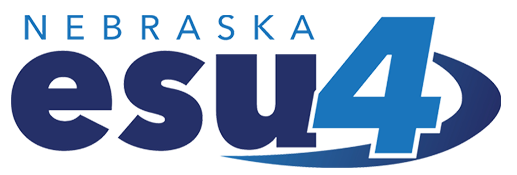3043: Professional Boundaries Between Employees and Students
ESU employees are responsible for conducting themselves professionally and for teaching and modeling high standards of behavior and civic values, both at and away from the ESU. Employees are required to establish and maintain professional boundaries with students. They may be friendly with students, but they are the students’ teachers, not their friends, and they must take care to see that this line does not become blurred. This applies to employees’ conduct and interactions with students and to material they post on personal web sites and other social networking sites including, but not limited to, Instagram, Facebook, and Twitter. The posting or publication of messages or pictures or other images that diminish an employee’s professionalism or ability to maintain the respect of students and parents may impair his or her ability to be an effective employee. Employees are expected to behave at all times in a manner supportive of the best interests of students.
Unless an employee has a legitimate educational purpose (which includes NCECBVI staff assisting some students with bathing, showering, dressing, and other personal care needs and includes additional one-to-one time with students that is not typically required with general education students), the following behavior is a violation of the professional boundaries that employees are expected to maintain with students. The following list is intended to illustrate inappropriate behavior involving students but not to describe every kind of prohibited behavior.
- Communicating about sex when the discussion is not required by a specific aspect of the curriculum.
- Joking about matters involving sex, using double entendre or making suggestive remarks of a sexual nature.
- Displaying sexually inappropriate material or objects.
- Making any sexual advance, whether written, verbal, or physical or engaging in any activity of a sexual or romantic nature.
- Kissing of any kind.
- Dating a student or a former student within one year of the student graduating or otherwise leaving the ESU.
- Intruding on a student’s personal space (e.g. by touching unnecessarily, moving too close, staring at a portion of the student’s body, or engaging in other behavior that makes the student uncomfortable).
- Initiating unwanted physical contact with a student.
- Communicating electronically (e.g. by e-mail, text messaging, or through social media) on a matter that does not pertain to school. Electronic communications with students generally are to be sent simultaneously to multiple recipients and not just to one student except when the communication is clearly school related and inappropriate for persons other than the individual student to receive (i.e. grades).
- Playing favorites or permitting a specific student to engage in conduct that is not tolerated from other students.
- Discussing the employee’s personal issues or problems that should normally be discussed with adults.
- Giving a student a gift of a personal nature.
- Giving a student a ride in the employee’s vehicle without first obtaining the express permission of the student’s parents or a school administrator.
- Taking a student on an outing without first obtaining the express permission of the student’s parents or a school administrator.
- Inviting a student to the employee’s residence without first obtaining the express permission of the student’s parents and a school administrator.
- Going to a student’s home when the student’s parent or a proper chaperone is not present.
- Repeatedly seeking to be alone with a student.
- Being alone in a room with an individual student at school with the door closed.
- Any after-school hours activity with only one student.
- Any other behavior which exploits the special position of trust and authority between an employee and student.
This list is not exhaustive. Any behavior which exploits a student is unacceptable. If in doubt, ask yourself, “Would I be doing this if my family or colleagues were standing next to me?”
An employee is required to make a report to the administrator if the employee reasonably believes that another employee has violated or may have violated this policy. Minor concerns or violations shall be reported within 24 hours. Major concerns or violations shall be reported immediately. Violations committed by or concerns about the administrator shall be reported to the ESU 4 board president.
A student who feels his or her boundaries have been violated should directly inform the offender that the conduct or communication is offensive and must stop. If the student does not wish to communicate directly with the offender or if direct communication has been ineffective, the student should report the conduct or communication to a teacher, administrator, counselor, the Title IX coordinator, or other school employee with whom she or he feels comfortable.
Retaliation for good faith reports or complaints made as a result of this policy is prohibited. Individuals who knowingly and intentionally make a false report shall be subject to discipline as provided by ESU policy and state law.
A violation of this policy will form the basis for employee discipline up to and including termination or cancellation of employment, filing a report with law enforcement officials, and filing a report with the Commissioner of Education.
Adopted on: December 10, 2018
Reviewed on: December 8, 2025
